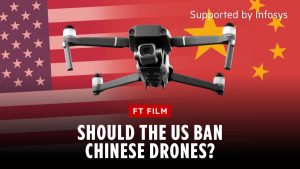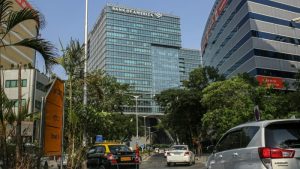OpenAI demands exclusive relationships with investors
This article is an on-site version of our FirstFT newsletter. Subscribers can sign up to our Asia, Europe/Africa or Americas edition to receive the newsletter every weekday. Explore all of our newsletters here
Good morning. Today we’re covering:
-
A violent clash in the South China Sea
-
India’s employment crisis
-
The risks of connected cars
But we start with OpenAI, which has asked investors to avoid backing rival start-ups such as Anthropic and Elon Musk’s xAI. The unusual move by the ChatGPT-maker comes as it secures $6.6bn in new funding.
The San Francisco-based group, led by chief executive Sam Altman, announced yesterday it had completed its latest fundraising at a $150bn valuation, the highest in Silicon Valley’s history.
During the negotiations, the company made clear that it expected an exclusive funding arrangement, according to three people with knowledge of the discussions.
Seeking exclusive relationships with investors restricts rivals’ access to capital and strategic partnerships. It is rarely insisted on, according to VCs, and many leading firms have spread their bets in certain sectors.
OpenAI’s move risks inflaming existing tensions with competitors, especially Musk, who is suing OpenAI. George Hammond and Stephen Morris have more from Silicon Valley.
-
Opinion: OpenAI’s emergence has transformed the tech landscape, but the company feels competitors breathing down its neck, writes Richard Waters.
Here’s what else I’m keeping tabs on today:
-
Economic data: Hong Kong reports August retail sales. S&P Global publishes September services PMI for Japan and Australia, and whole economy PMI for Singapore.
-
Holidays: Financial markets are closed in China as Golden Week continues. In South Korea they are closed for National Foundation Day.
Five more top stories
1. Several Vietnamese fishermen were severely injured in an attack by two ships identified as Chinese law enforcement vessels. The incident is believed to be the most violent clash between the two sides in disputed waters of the South China Sea for years. Here’s what happened.
2. US President Joe Biden has said he does not support an Israeli strike on Iran’s nuclear facilities as the region braced for the response to Tehran’s ballistic missile attack on Israel. “The answer is no,” Biden said, while warning that Iran would face sanctions for its actions.
-
Go deeper: Here are the possible scenarios for a widely expected Israeli retaliation for Iran’s missile barrage.
-
Iran’s hardliners: Fearful of looking weak, Iran’s military leaders prevailed over the reformists and their message of restraint in the decision to attack Israel on Tuesday. In doing so, Tehran has taken a huge risk.
3. Toyota has said it will invest $500mn and raise its stake in air taxi start-up Joby Aviation. The Japanese group is already Joby’s largest external shareholder, and the fresh funding comes as the start-up aims to launch commercial flying taxi services as soon as next year.
-
Tesla: The company’s quarterly vehicle deliveries fell short of market expectations, damping hopes for a robust rebound on the back of a recovery in Chinese car demand.
4. China’s outbound investment is surging from already-record levels, government data shows, as analysts suggest that the country’s booming clean energy technology sector is increasingly looking to set up manufacturing operations abroad in the face of US and EU tariffs and driving a “tsunami” of green investment.
-
More China news: The Asian Infrastructure Investment Bank, Beijing’s answer to the World Bank, is giving its backing to what it believes will be a wave of renminbi bonds issued by developing nations wanting to tap Chinese investors.
5. Amazon is set to increase the number of advertisements on its Prime Video platform next year as the US tech giant steps up its push into ad-funded streaming services. The company said it had not seen a sharp drop in subscribers since it introduced advertising to the platform eight months ago, allaying fears among top executives of a customer backlash.
News in-depth

India faces an economic mismatch: the country is failing to create enough jobs for its young and growing population and train the skilled workers its companies need to harness that demographic dividend. The employment crisis is feeding widespread grievances and looms over Prime Minister Narendra Modi’s third term as the opposition seeks to build momentum against his Bharatiya Janata party in a string of regional polls.
We’re also reading . . .
-
Ozempic and the gym: Weight-loss drugs and a new focus on wellness are pushing many exercise machines towards obsolescence, writes Brooke Masters.
-
The risks of connected cars: The race to make electric cars into smartphones on wheels raises important questions about privacy and safety for drivers, writes June Yoon.
-
Common adversary: Democrats and Republicans co-operated as a matter of routine during the cold war, perhaps united in opposition to the USSR. Janan Ganesh wonders why the rise of China isn’t bringing Americans together.
Chart of the day
China’s stimulus package unveiled in the run-up to a holiday marking 75 years of the People’s Republic was greeted as a gift by ecstatic domestic investors. But many foreign investors still want to see if the package — which targeted the country’s depressed stock and property markets — will be backed by heavy fiscal spending as they decide whether to upgrade underweight positions.
Take a break from the news
Most New Yorkers have rat stories, spotting them in the streets but also in buildings, coming up from their toilets or — brace yourself — their beds. In response to the rodent infestation New York has appointed a “rat tsar”, opened “rat academies” and launched a rat information portal. Now it wants to team up with other cities and take its programme national.

Additional contributions from Gordon Smith and Tee Zhuo
#OpenAI #demands #exclusive #relationships #investors








